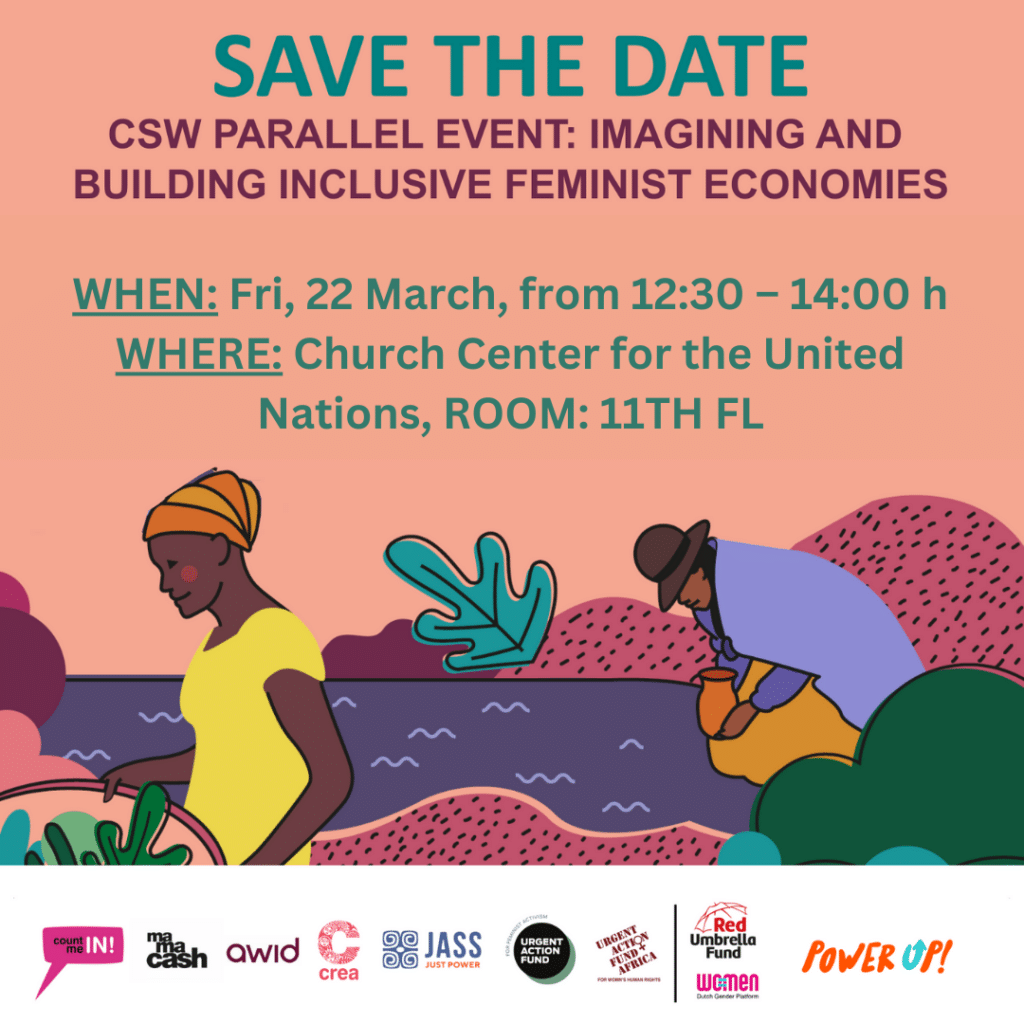Feminist economic realities (FERs) are models, approaches, imaginings, and actions that critique and directly challenge unjust economic orthodoxies, most notably global neo-liberal capitalism, and provide solutions to dismantle the unequal power relations that are rooted in systems of economic oppression. They are an attempt at showing a better way of living, working with nature and organising our society by centring care, well-being, sustainability of life for people and planet.
What are feminist economic realities (FERs)?
FERs are people-centred, holistic, rights-,values- and justice-based, and understand the dimensions of care, pleasure, and managing life in general, and not by values placed only on economic growth. FERs recognise and challenge both the myopia and injustices inherent within economic growthism that has caused significant destruction to our planet and well-being, driven primarily by values of capitalist accumulation.
FERs are positioned as a struggle within as well as existing outside the dominant economic model. Ultimately, although FERs emerge from people’s struggles within the systems, we recognise that communities have also been organising socio-economically for decades or even centuries in what are today considered ‘alternative’ ways, before being disrupted by neo-liberal capitalist economic systems and colonisation. These realities are therefore not necessarily always new, and we recognise that FERs can be found across societies that have held this knowledge for a long time already.
Some examples…
Examples of FERs are myriad. Some common themes FERs organise around include valuing women’s work, centring care work, defence of traditional knowledge systems and the commons, which aim to challenge the exploitations inherent within the dominant economic neo-liberal capitalist system. Questioning endless economic growth that is extractive and non-redistributive, austerity policies and the dominance of market economics is also critical.
FERs manifest in different forms. Examples of these include movements for feminist debt, tax and trade justice, labour rights that challenge workers’ oppression and fight for dignified and decent work, land and resource justice, ecological feminist practices such as the right to Say No to extractivism, agro-ecological movements and their alignments with food and seed sovereignty, and cooperativism and financial collectivism in its varied manifestations. These examples are not exhaustive.
What is CMI! doing in this area?
CMI!’s members and partners are already doing a lot in this area. CMI!, as a collective aspires to showcase the work and generate interest and enthusiasm in different feminist and economic spaces.
As part of our work in this area, the CMI! FERs Working Group is hosting a parallel event at CSW68 on 22nd March 2024 – Imagining and Building Inclusive Feminist Economies. This session will look at how women and structurally excluded communities are already building feminist economic realities that serve their communities and preserve the planet for future generations. Participants from Dominican Republic, Uganda, and Indonesia will share their stories and experiences of hope, resistance, and imaginative solutions. This is a CSW in-person event open to all. You can find more details and register here.


Advancing Economic Justice is one of the CMI! consortium’s priority areas. Since the starting of the programme they have been working on supporting women human rights defenders who are resisting extractive project in their areas. You can learn more about this work here. In 2023, CMI! decided to adopt feminist economic realities as a key area of its collective work, forming a Working Group and developing a committed work plan to guide our actions. Our ongoing activities in the coming years include collating and building knowledge on FERs, connecting movements and spaces, and advocacy, influencing, and disruption.